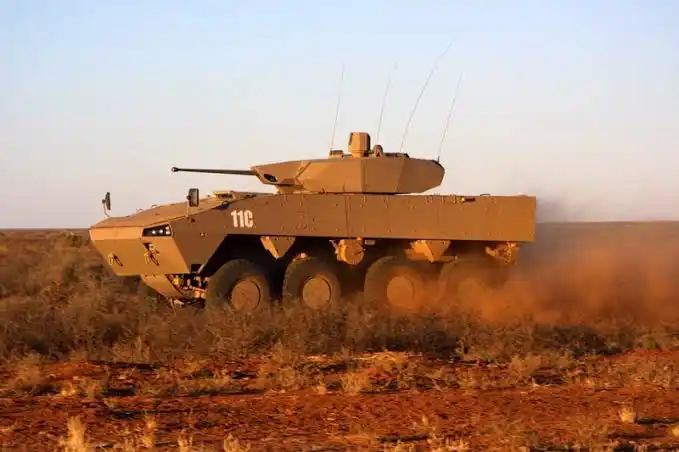Barely a few months after state-owned Armscor recommended the contract to acquire 264 Badger armored vehicles in five variants be canceled and the money be spent on Ratel upgrades, South African Defence and Military Veterans Minister Thandi Modise now admit that the project is unlikely to happen.
The Badger infantry fighting vehicles (IFVs) we’re supposed to be purchased under Project Hoefyster which has been delayed by more than a decade.
Defence company Denel Land Systems which is the prime contractor for the acquisition of the Badger IFVs stated clearly a few years ago that it cannot fulfill the contract due to increasing technical and financial challenges in Denel.
In its 2020/21 annual report, Armscor noted that the Badger IFV development had not reached product baseline establishment by the end of the reporting period, failing two rounds of performance tests.
In response to a question by Democratic Alliance (DA) shadow defence and military veterans minister Kobus Marais who wanted to know the status of Project Hoefyster, Minister Thandi Modise’s responded on 15 May that “Denel, by their own written admission, has conceded that they cannot complete Project Hoefyster within specification, budget or timescale.”
And that there has been virtually no progress on the project due to financial and capacity constraints within Denel, over the past three years.
Minister Thandi Modise further stated that the board of directors of Armscor resolved during December 2021 to cancel the Project Hoefyster industrialisation and production contract on Denel in principle, conditional on engagement with all relevant stakeholders.
“Based on a recommendation by the SA Army, Armscor submitted to the DoD (Department of Defence) Acquisition Forums that Project Hoefyster be deferred upon completion of Phase One (Development) by Denel. Completion of Phase One would imply that a baseline would be established for the future industrialisation and production of the range of vehicles, should funding become available and sufficient capacity within the domestic defence industry exist. Completion of Phase One and establishing an acceptable baseline would imply [that] the cost of development would not be regarded as fruitless and wasteful.”
Apparently, R200 million is needed to complete the development phase over a three year period, and production will take six years, at the cost of an estimated R9 billion. If funding is available.
Modise also explained that investigation of the “most appropriate and cost effective solution” would only start when the Hoefyster cancellation is confirmed.
“The DoD supports the pursuance of a replacement for the Ratel ICV in order to stimulate and support the South African defence industry (SADI)” as well as maintain specialist capabilities, Modise states with a warning to end her reply.
“The pursuance of an acquisition of a replacement or upgrade of the Ratel would be subject to sufficient funds being allocated to the DoD to meet the requirement.”
South Africa’s Project Hoefyster had intended to acquire 264 Badger armored vehicles in five main variants: Command, Missile, Section, Fire Support, and Mortar to partially replace the Ratel fleet.
Decades after Project Hoefyster was signed, the South African Army is yet to receive any Badger IFV, despite a total of R7.6 billion been spent on the project; R1.5 billion spent on the design and development phase, and R5 billion on the industrialisation phase. The entire project was valued at R16.2 billion by Armscor.
If Project Hoefyster is cancelled, funds from the contract could be channeled into the upgrading of Ratel vehicles, and there is the possibility of selling off Hoefyster items worth R1.2 billion, including 28 CamGuns, 15 Badger vehicles delivered by Patria, 58 training simulators, and stocks of 30×173 mm CamGun ammunition.


